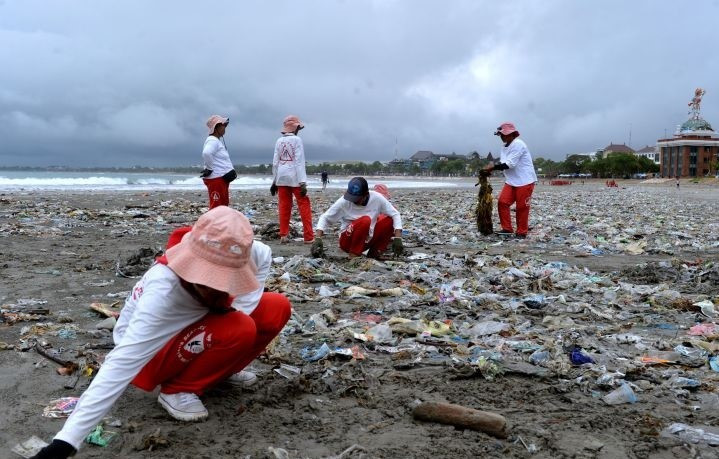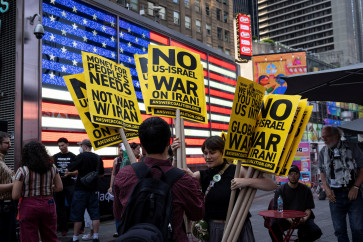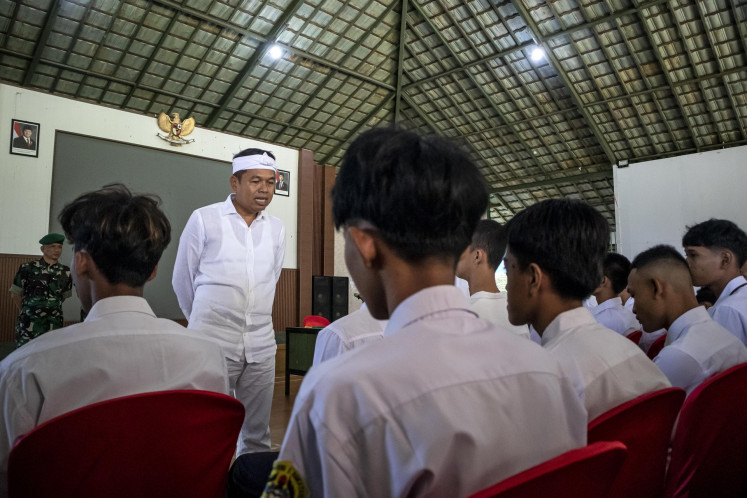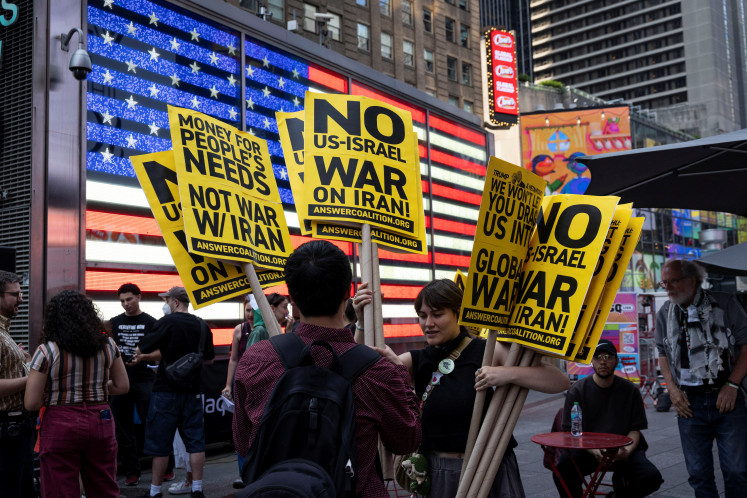Combating plastic pollution before it takes root
While a ban on plastic bags could help reduce the amount of waste, it may not be enough to address the scale of the problem.
Change text size
Gift Premium Articles
to Anyone

I
n 2018, the world was taken aback when an al-Qaeda-backed terrorist group, Al-Shabaab, known for its violent acts, surprisingly imposed a ban on single-use plastic bags, citing concerns about the well-being of humans and animals alike, and highlighting their concern for the environment.
Meanwhile, in Indonesia, a nation deeply vested in preserving its natural beauty and resources, a monumental plastic-waste crisis looms large. The country generates a staggering 6.8 million tonnes of plastic waste annually (Zero Waste Center), Alarmingly, it turns out that Indonesia has become one of the largest global importers of plastic waste. In 2020, Indonesia's net import of plastic waste reached 138,000 tonnes (Katadata).
As plastic pollution continues to plague our land, oceans and communities, finding a viable solution is paramount. While banning plastic bags may initially appear as an obvious remedy, the reality is far from straightforward.
Efforts to tackle the plastic-waste crisis in Indonesia by solely banning plastic bags may not yield the expected results. Several compelling reasons underpin this dilemma. One significant challenge is the country's waste management infrastructure, which is struggling to cope with the massive amounts of plastic waste generated every day.
While a ban on plastic bags could help reduce the amount of waste, it may not be enough to address the scale of the problem. The existing facilities may not be able to handle the volume of waste, potentially making the environmental situation even worse.
To overcome this, comprehensive and sustainable waste management systems are required, including the development of more efficient recycling and waste-to-energy facilities.
Furthermore, there are concerns about the impact of a plastic-bag ban on the informal sector. Many marginalized waste collectors and traders rely on the plastic waste trade for their livelihoods. A sudden ban on plastic bags could put their jobs at risk and worsen socioeconomic disparities.
Addressing this issue requires a multistakeholder approach, involving collaboration between the government, private sector and NGOs, to create alternative livelihood opportunities for informal waste workers and ensure a smooth transition to more sustainable practices.
Changing cultural mindsets is another challenge in implementing a plastic-bag ban. Plastic has become deeply ingrained in Indonesian culture as a symbol of modernity and convenience. A blanket ban on plastic bags could face resistance from the public.
To overcome this, a comprehensive public awareness campaign is needed to shift mindsets and promote acceptance of alternative solutions. The campaign should focus on educating citizens about the environmental impacts of plastic pollution and highlight the benefits of using reusable bags and other eco-friendly alternatives.
While banning plastic bags is a positive step toward reducing plastic waste, it is imperative to recognize that plastic bags represent only a fraction of the overall plastic pollution problem. Recent research shows that within Greater Jakarta, approximately 13.5 percent of all debris items found and 8.5 percent of their total weight is attributed to thin or thick plastic wraps and sacks (Cordova, M.R., Nurhati, I.S, 2019). Additionally, the replacement materials used, such as paper, thick plastic and reusable bags, may have unintended environmental consequences (Kaste, M, 2019).
For instance, a study in 2016 by Denmark's Environment and Food Ministry reveals that a paper bag must be reused at least 43 times to have a lower per-use environmental impact than a typical disposable plastic bag used just once.
To effectively address Indonesia's plastic waste problem, incentivizing the use of reusable packaging emerges as a promising solution. The focus must shift toward reducing plastic waste at its source, battling plastic pollution before it reaches our oceans and communities.
The private sector and communities must be encouraged to use high-quality and affordable packaging yet a profitable business model to run.
For example, start-ups that promote reusable packaging can partner with various brands and incentivize them to package their products in durable, high quality and refillable containers. These containers are designed to be used multiple times, significantly reducing the amount of single-use packaging waste generated in Indonesia.
To successfully incentivize reusable packaging, all sectors must come together, with the government playing a leading role. This includes providing the necessary support and resources to implement effective solutions and raising awareness of the problem to encourage behavioral change.
Government support for reusable bags, improved waste management infrastructure and the implementation of taxes on single-use plastics is crucial. Subsidizing the production and sale of reusable bags and packaging would make them more accessible to people, thereby encouraging their use.
Moreover, improving waste management infrastructure can significantly reduce plastic waste reaching landfills or incinerators, minimizing environmental impact. Research conducted by the Ellen MacArthur Foundation revealed that implementing a ban on single-use plastics alone may not be sufficient in reducing plastic waste. Instead, the study emphasized the need for complementary measures to enhance the accessibility and affordability of reusable alternatives.
Similarly, the University of California, Berkeley, in the United States conducted a study advocating for the adoption of a deposit-refund system, incentivizing consumers to return their beverage containers as an effective strategy to mitigate plastic waste.
While banning plastic bags may seem like a straightforward solution, the plastic waste crisis in Indonesia demands a more holistic approach. Embracing this challenge and embarking on a transformative journey toward a greener, cleaner Indonesia requires unwavering commitment from all stakeholders. The World Economic Forum's research indicated that the most successful approach to curbing plastic pollution involves a combination of strategies, including bans, taxes and incentives.
Through comprehensive government support and united action, we can navigate the complexities of the plastic paradox, paving the way toward a plastic-free future that resonates with environmental responsibility for generations to come.
The time for action is now, and together, we can shape a sustainable future that preserves the natural heritage of our beloved nation.
***
The writer is a chief strategy and business development officer at Siklus, a start-up that delivers consumer products to the door in reusable packaging.









